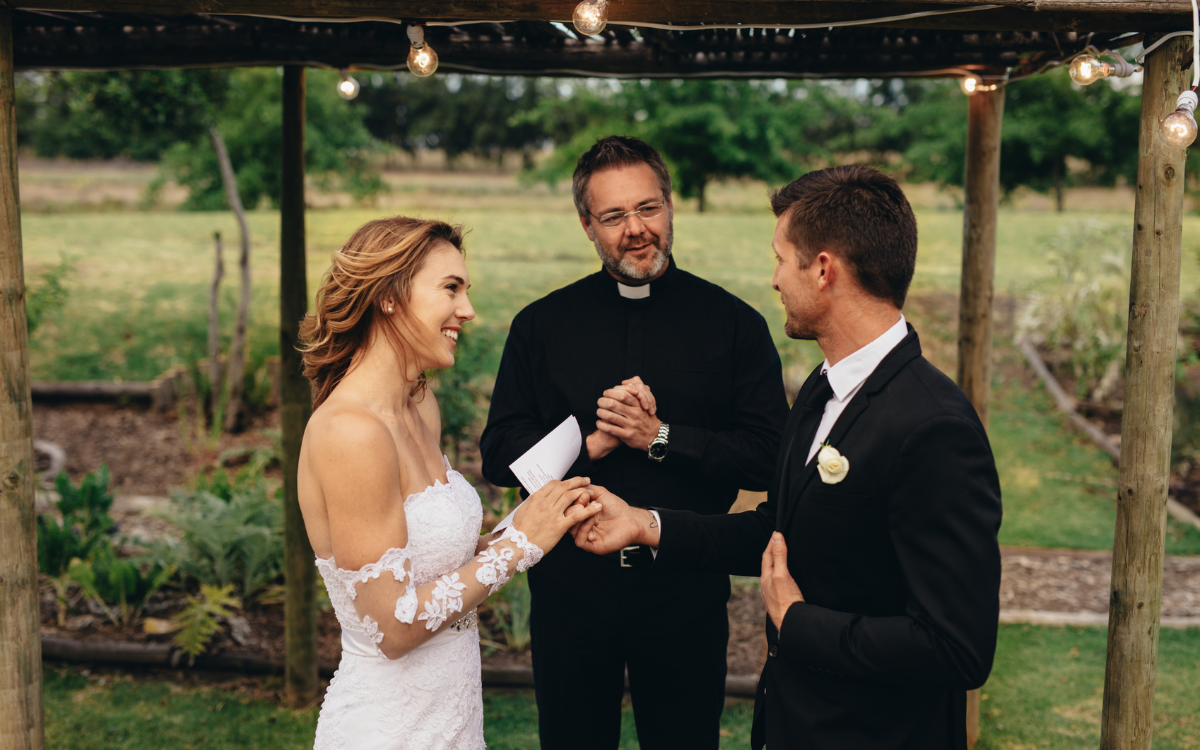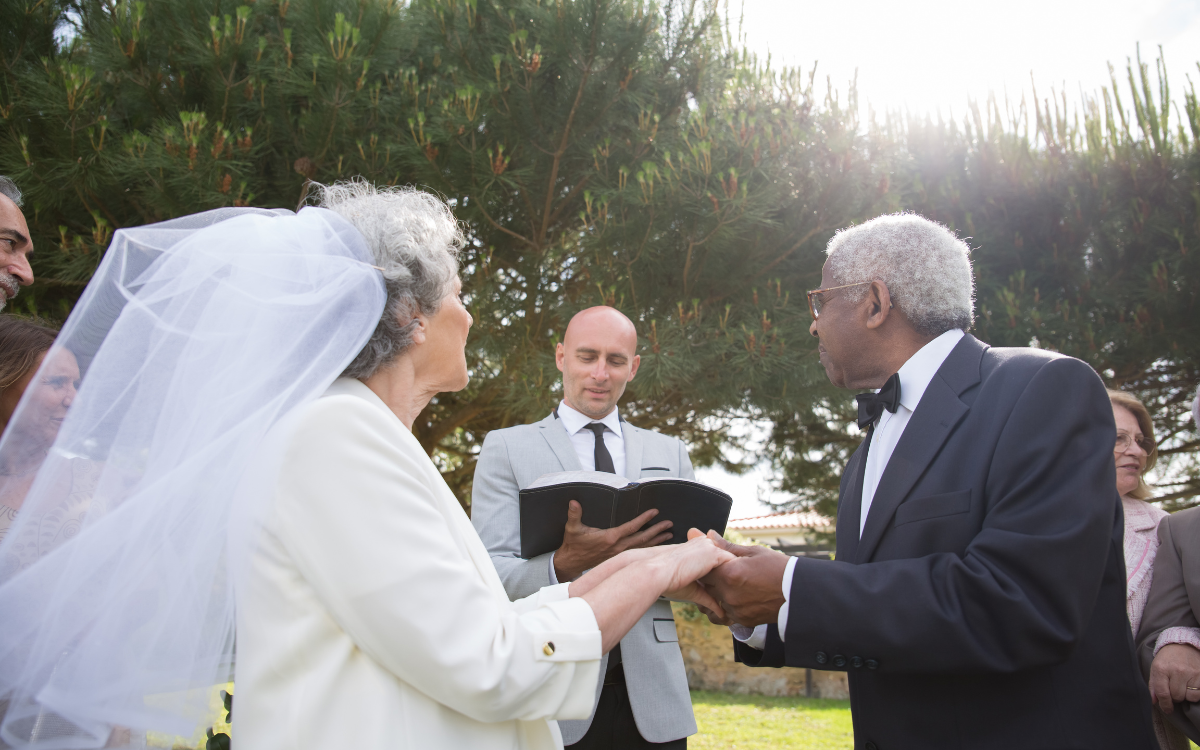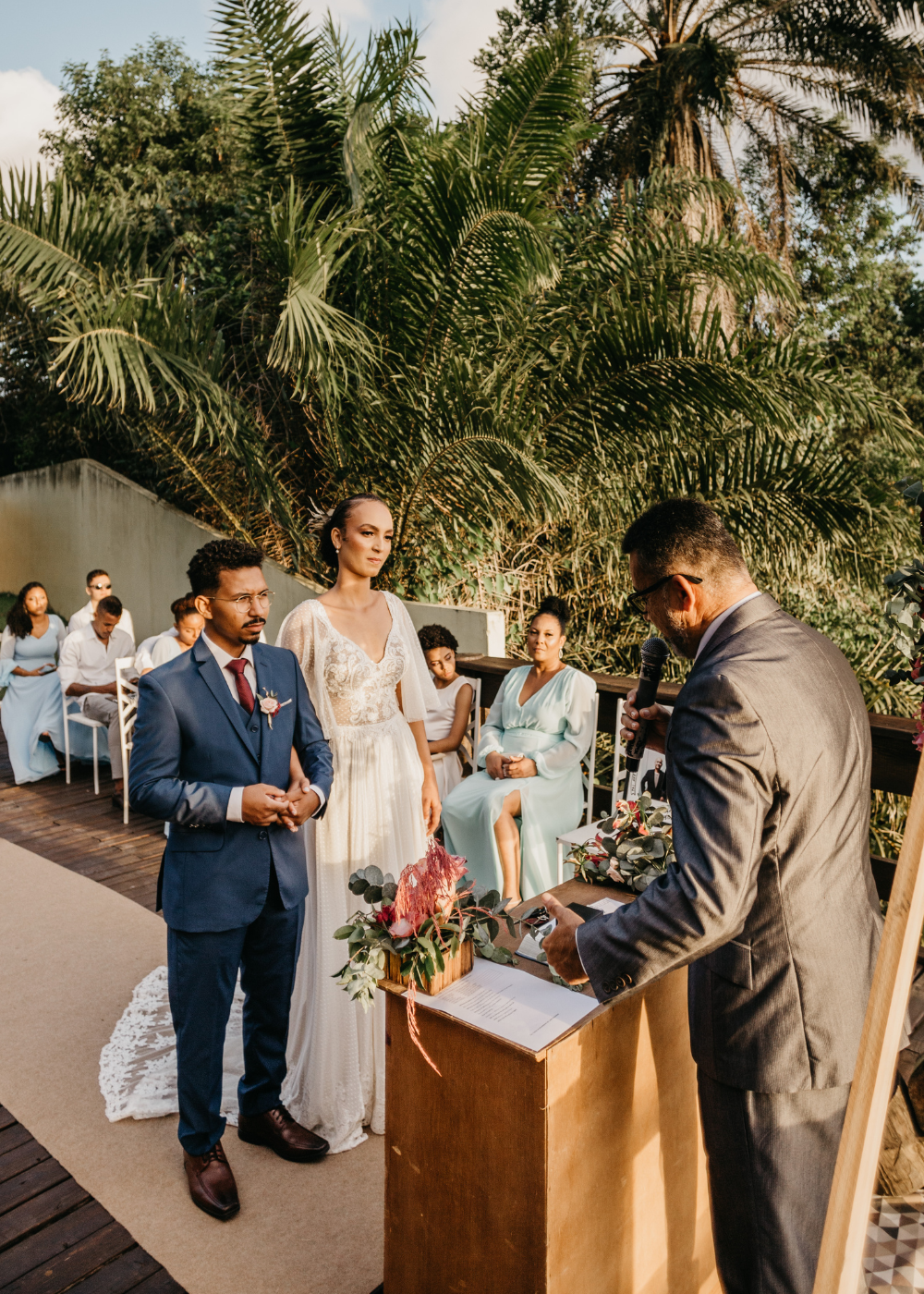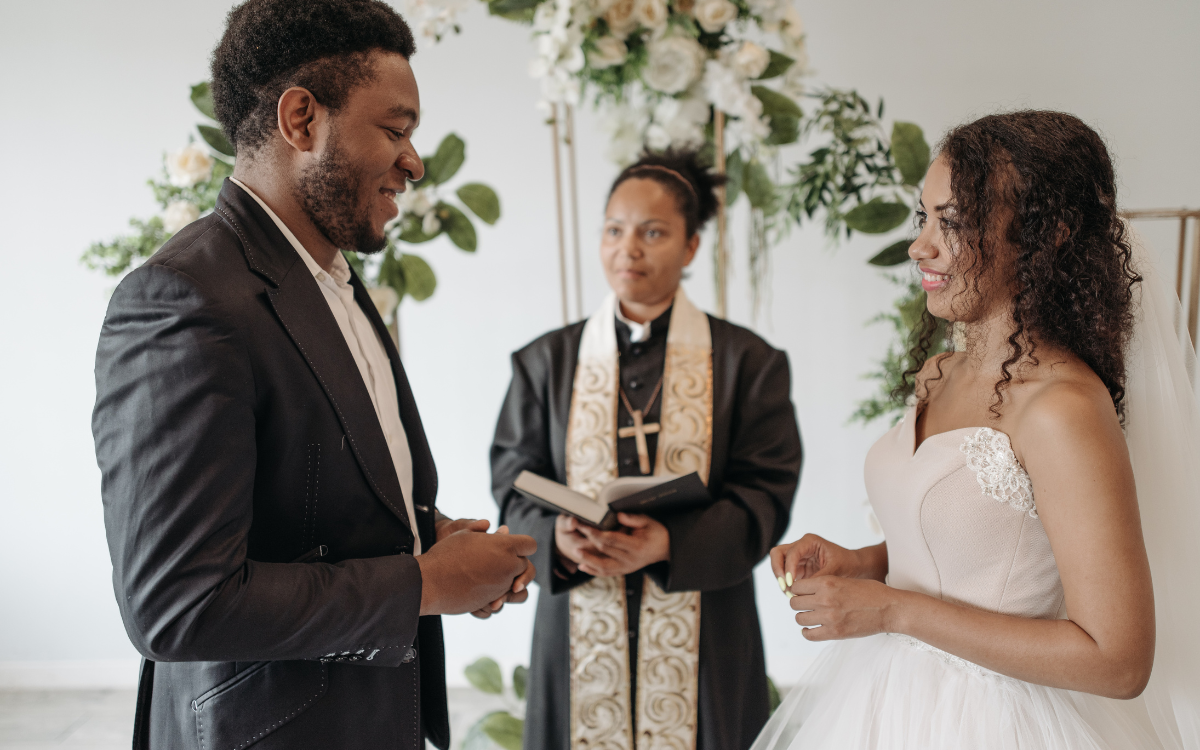Getting married in Illinois? Making sure you have a qualified officiant to perform your ceremony is an important part of planning a legal wedding.
This comprehensive guide will explain exactly who can officiate weddings in Illinois, from religious ministers to judges and clerks.
We’ll outline the marriage officiant laws, requirements, and process so you can ensure your Illinois wedding is valid.
Who Can Legally Officiate Weddings in Illinois

In Illinois, several types of officiants are legally authorized to solemnize marriages. This includes current and retired judges, clerks of the circuit court, and some municipal officials.
Clergy and ministers of any religious denomination are also eligible to officiate weddings once registered with the county clerk.
The state also allows the Secretary of State to appoint one-day officiants to perform civil wedding ceremonies.
Friends or family members can officiate too, as long as they register online with the county clerk’s office and meet certain criteria. Overall, Illinois offers couples a good range of options for authorized wedding officiants.
Becoming an Ordained Officiant in Illinois
If you want a close friend or family member to officiate your Illinois wedding, they can become ordained online through the Universal Life Church or American Marriage Ministries.
This quick online process allows anyone to register as a minister able to perform weddings. Aspiring officiants simply need to register with the county clerk’s office and pay a small fee after getting ordained.
They’ll receive credentials allowing them to solemnize marriages anywhere statewide. Going this route allows couples to have a more personal officiant. Just remember your officiant must register with the county clerk in advance to make it fully legal.
Requirements for Officiants in Illinois

In Illinois, officiants must register with the county clerk’s office in each county where they’ll perform ceremonies. Registration involves filing an application and paying a small fee, which is usually around $10.
Officiants must show proof of ordination or credentials from their church or ministry.
The county clerk then issues a license that allows them to solemnize marriages within that county. Officiants should carry their license when performing weddings.
Keep in mind the license must be renewed every two years. Illinois law also requires at least two witnesses be present at the wedding ceremony.
How to Obtain a One-Day Officiant License in Illinois
Many couples want a friend or family member to officiate their wedding ceremony. Illinois offers one-day marriage officiant licenses as an option in these cases.
To get a one-day license, the person must be at least 18 years old and submit an application to the county clerk’s office in the county where the wedding will take place. This has to be done by the couple getting married, not the officiant themselves.
The application form asks for basic information about the couple and officiant. There is typically a small fee around $5-10 for the one-day license.
With the license, the officiant can legally perform the wedding ceremony on the date listed. It allows almost anyone to serve as an officiant for a day. Just make sure to apply with enough time before the wedding day.
Officiant Registration and Documentation Needed in Illinois
To legally officiate a wedding in Illinois, the officiant must register and obtain the proper documentation. There are a few different options for officiants:
- Ordained ministers can officiate with proof of ordination and credentials from their church or religious organization. They will also need to file credentials with the county clerk.
- Judges and court officials can officiate with their official credentials.
- Friends or family can obtain a one-day officiant license from the county clerk’s office. This allows them to legally officiate just one wedding ceremony.
- Online-ordained officiants can perform ceremonies with proof of ordination. However, they still need to register with the county clerk in advance.
No matter the type of officiant, they will need to confirm eligibility and file the appropriate documentation. Reaching out to the county clerk’s office in advance ensures the officiant has the proper credentials to make the wedding legally binding.
Officiant Restrictions and Limitations in Illinois

While Illinois allows a good amount of flexibility for who can officiate a wedding, there are some restrictions and limitations to be aware of:
- The officiant must be at least 18 years old. Underage friends or family members cannot legally officiate.
- Officiants ordained online must still register with the county clerk, even if they have credentials. The county may not recognize online-only ordinations as valid.
- The officiant has to be physically present for the ceremony. It cannot be done virtually over video.
- Officiants can lose their legal ability to perform ceremonies if a complaint is filed against them. Common reasons include failing to properly file paperwork or presiding over unlawful ceremonies.
- One-day officiant licenses from the county clerk are valid only for that specific date and wedding. The officiant cannot use it for any other ceremonies.
- Overall, it’s important that officiants follow proper protocol and act in an ethical manner. As long as the necessary steps are taken, most people can officiate a wedding in Illinois.
Options for Selecting an Officiant in Illinois
When planning a wedding in Illinois, you have several options for choosing an officiant to perform the ceremony:
- You can have a friend or family member ordained online through the Universal Life Church or American Marriage Ministries. This ordination is legally valid in Illinois.
- Judges, court clerks, some public officials like mayors or aldermen, and religious leaders can all perform legal wedding ceremonies.
- You can hire a professional officiant, like those found through the Chicago Wedding Officiants website. Many specialize in non-religious or interfaith ceremonies.
- Ship captains can perform ceremonies in Illinois as long as the marriage license is obtained on shore first and the ship is docked during the wedding.
- Overall, Illinois offers a lot of flexibility in officiant choice. Just be sure whoever you choose is legally able to solemnize marriages in the state before booking them.
- With the right officiant who meets state requirements, you can customize your Illinois wedding ceremony however you wish.
Frequently Asked Questions (FAQs)
Who can legally marry in Illinois?
In Illinois, any couple can legally marry as long as they meet the basic requirements: both partners are 18 years old or older, are not closely related, are unmarried, and consent to be married. Same-sex marriage is legal in Illinois.
Is Universal Life Church legal in Illinois?
Yes, the Universal Life Church is recognized as a valid officiant for weddings in Illinois. As long as the officiant has registered with the county clerk, marriages performed by ULC ministers are legally binding.
How do I self solemnize in Illinois?
Illinois allows self-solemnization, meaning couples can legally marry themselves without an officiant. To self-solemnize, you must meet all the standard marriage requirements and complete a self-uniting marriage license. Both partners must be present to self-solemnize.
Can you apply for a marriage license online in Illinois?
No, Illinois does not currently offer online marriage license applications. You have to apply in person at the county clerk’s office where you or your partner reside. Both partners must be present to apply for an Illinois marriage license.
Conclusion
Illinois has fairly open marriage laws – anyone can legally officiate a wedding in Illinois as long as they register with the county clerk first. Same-sex couples can legally marry, and couples even have the option to self-solemnize their own weddings. The one restriction is that couples must apply for their marriage license in person. Key points are that universal life church ministers, self-uniting licenses, and same-sex marriage are all legal in Illinois.

